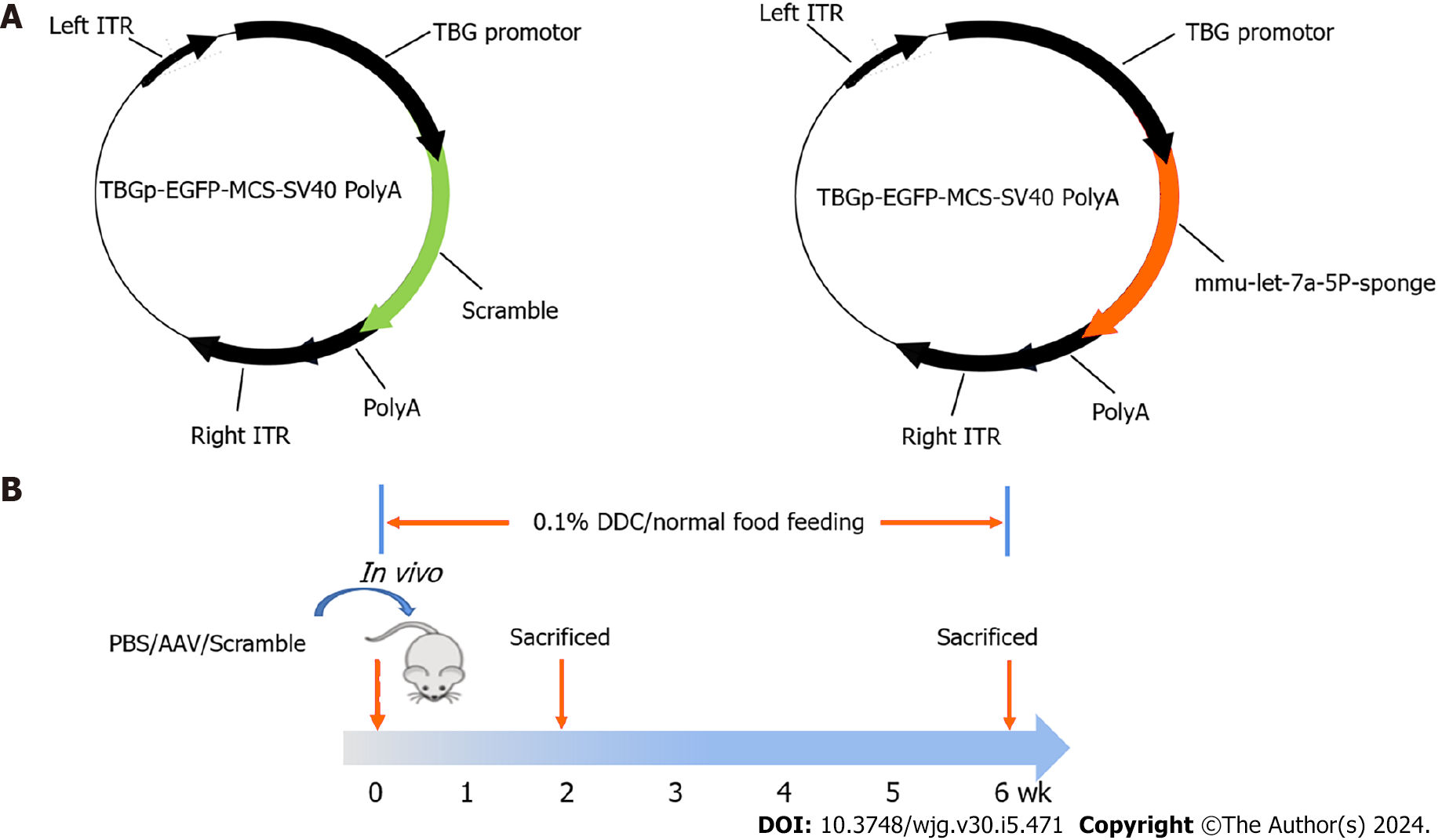Copyright
©The Author(s) 2024.
World J Gastroenterol. Feb 7, 2024; 30(5): 471-484
Published online Feb 7, 2024. doi: 10.3748/wjg.v30.i5.471
Published online Feb 7, 2024. doi: 10.3748/wjg.v30.i5.471
Figure 1 Schematic representation of recombinant adeno-associated virus 8 delivered let-7a-5p inhibitor and the design of experiment.
A: Diagrams of anti-let-7a-5p sponges’ vector and anti-scramble control (SCR) control vector; B: The design of the experiment. The mice were divided 3 groups (n = 6 for each group): (1) Normal control mice with feeding chow; (2) 3,5-Diethoxycarbonyl-1,4-Dihydrocollidine (DDC) feeding mice who were iv injected with adeno-associated virus 8-anti-SCR at the dose of 4 × 1011 vg per mouse; and (3) DDC feeding mice were iv injected with anti-let-7a-5p sponges (anti-let-7a-5p) at the dose of 4 × 1011 vg per mice. The mice in each group were sacrificed at 2 wk and 6 wk after DDC feeding to evaluate the expression of let-7a-5p and the therapeutic effects of let-7a-5p inhibitor. ITR: Invert terminal repeat; TBG: Thyroxine-binding globulin; DDC: 3,5-Diethoxycarbonyl-1,4-Dihydrocollidine; AAV: Adeno-associated virus.
- Citation: Hua H, Zhao QQ, Kalagbor MN, Yu GZ, Liu M, Bian ZR, Zhang BB, Yu Q, Xu YH, Tang RX, Zheng KY, Yan C. Recombinant adeno-associated virus 8-mediated inhibition of microRNA let-7a ameliorates sclerosing cholangitis in a clinically relevant mouse model. World J Gastroenterol 2024; 30(5): 471-484
- URL: https://www.wjgnet.com/1007-9327/full/v30/i5/471.htm
- DOI: https://dx.doi.org/10.3748/wjg.v30.i5.471









